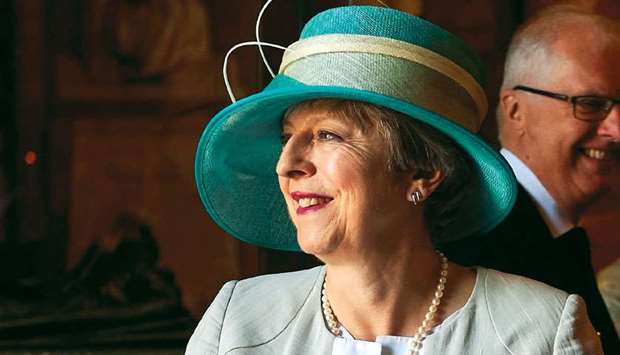Britain yesterday celebrated the “enormous contribution” of its Caribbean migrants, who for a long time were airbrushed from history while some were even recently threatened with deportation.
Prime Minister Theresa May attended a service at Westminster Abbey marking 70 years since the first arrivals embarked from the Empire Windrush ship at Tilbury docks, east of London.
Most of those who arrived on June 22, 1948, were from Jamaica, but also Bermuda and British Guiana, answering a call for workers to help rebuild Britain after World War II.
Tens of thousands followed from around the British empire, known as the Windrush generation and given free rights to live and work in a country they already considered home.
May’s government this week declared they would be remembered each day on June 22 with Windrush Day, and yesterday praised their “enormous contribution”.
“Our culture has been enriched and our society has been made stronger because of the people who travelled here to build new lives in the UK,” she said.
But Britain has not always been so warm towards its former colonial subjects. Intense racism marred the experience of many of the new arrivals, while the government was rocked by a scandal earlier this year over their continued right to live in Britain.
Some people who failed to get their papers in order at the time have fallen foul of a crackdown on illegal immigration, which May introduced when she was interior minister.
Anthony Bryan, a 60-year-old decorator from London who moved from Jamaica when he was eight years old, was among those who was threatened with deportation.
He said earlier this year how the challenge to his legal status — which also left him unable to work — “broke the trust that I thought I had with the British”. May apologised and promised compensation for those affected, as well as an inquiry.
“The fact that Britain has always been home makes the treatment that some members of the Windrush generation experienced in recent years so very wrong,” she said yesterday.
Sunder Katwala, director of the integration think tank British Future, said holding an annual Windrush day was “very welcome”.
“This was a positive, symbolic way to respond to that (scandal) and say that the government also thinks we should mark the positive contribution the migration has made to Britain,” he said.
When the Windrush arrived, the Evening Standard newspaper in London — where the majority of new migrants settled — greeted them with the headline “Welcome Home”. Many had served in the British army, and in that year, parliament adopted a law giving citizenship to all its colonial subjects.

Prime Minister Theresa May leaves after attending a service to mark the 70th anniversary of the landing of the Windrush, at Westminster Abbey yesterday.


